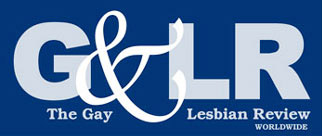Want the latest retirement plan adviser news and insights? Sign up for PLANADVISER newsletters.
ERISA Advisory Council to Review Audit Rules and Financial Reporting Model
An Advisory Council Issue Paper said the objective of the study is to identify what actions, if any, the Secretary of Labor may take with respect to ERISA’s audit requirement and financial reporting model to improve the Department of Labor’s oversight of employee benefit plan audits in order to enhance retirement security in the United States. The council intends to study how auditors work with plans to comply with ERISA § 103, the advantages and disadvantages of the audit requirement, the current financial reporting model under § 103 of ERISA, whether that model can and should be modified, and to what extent, if any, it should be modified.
The study will include a review of the applicability of limited-scope audits.
The council’s recommendations will focus on the types of guidance or regulations that the Secretary should consider with respect to ERISA’s audit requirement and financial reporting model. Depending on its findings, the council might recommend, among other things, that the Secretary seek enhanced statutory authority to prescribe a new reporting model (i.e., accounting standards or GAAP), prescribe revised or new audit and auditor standards for employee benefit plans, or both.
The Issue Paper pointed out that at the time ERISA was enacted, the most common retirement plans were defined benefit pension plans, and defined contribution plans have increasingly become the preponderant model for today’s workforce.
In addition, the Council noted:
- Plans in 1974 did not operate in the computerized, automated environment and varied structures that exist today.
- They rarely invested in sophisticated, alternative investments or other complex financial products that are commonplace in the current markets;
- The types and structures of institutions holding plan assets have also become more complex over the years; and
- Both Generally Accepted Auditing Standards (“GAAS”) and Generally Accepted Accounting Principles (“GAAP”), as they apply to employee benefit plans, have changed since 1974.
The Council said these changes warrant a review of ERISA’s auditing requirements and financial reporting model.
You Might Also Like:

Voluntary Fiduciary Correction Program Improvements Take Effect

JPMorgan Sued Over Health Plan’s Generic Drug Costs


